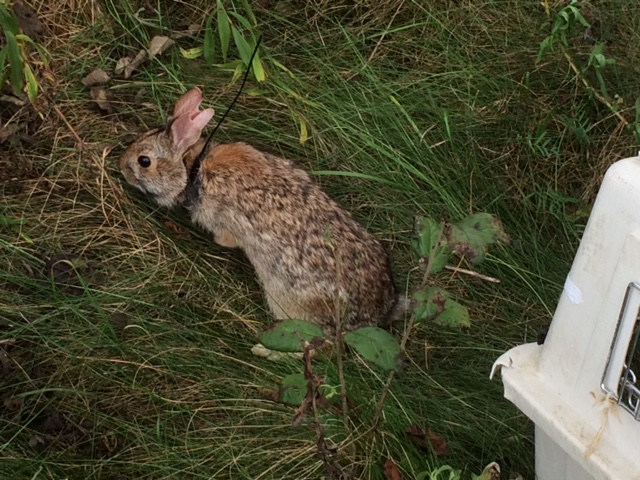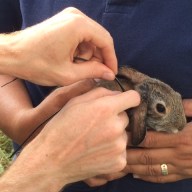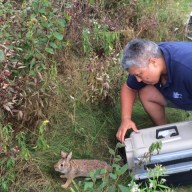BY BROOKE SMITH
The Wildlife Conservation Society (WCS) at the Queens Zoo has started a breeding program to boost the endangered population of the New England cottontail rabbit.
The zoo, located Flushing Meadows Corona Park, has successfully bred 11 rabbits this season that were released back into their native New England states.
Queens Zoo has partnered with the U.S. Fish and Wildlife Service, various state agencies in New York and New England universities, private and NGO partners, and the Roger WIlliams Park Zoo in a collaborative conservation effort.
The rabbits are bred in an off-exhibit space, not available for public viewing, in special habitats and conditions to encourage courtship and breeding.
The adult males and females are kept in separate enclosures at first, then later are introduced in specially designed rabbit pens where they live together for a week, in hopes that they will reproduce. The pens include hay beds, nest boxes and other features so the rabbits can pair up or separate as they would in the wild.
The young rabbits, known as kits, were born at the Queens Zoo and later sent to New Hampshire and Rhode Island. Biologists from the partnering agencies introduce them to a 1-acre outdoor acclimation pen until they are ready to be fully released into suitable forest and thicket-lined habitats.
“The New England cottontail is an example of a species that can be saved if enough people and organizations come together to help protect it,” said Scott Silver, director and curator of the WCS Queens Zoo.
The New England cottontail rabbit was recently listed as “threatened” or “endangered” under the Federal Endangered Species Act.
Much of their habitat, young forest and dense thickets, have disappeared, causing the species’ range to decrease by 86 percent since 1960. State wildlife agencies listed the cottontails as locally endangered or a species of special concern. Strong conservation strategies have slowed the decline and allowed the rabbit to rebound in certain areas of New England.
The collaborative conservation will not only benefit New England Cottontails, but will also support populations of other at-risk native mammals, birds and reptiles.





































